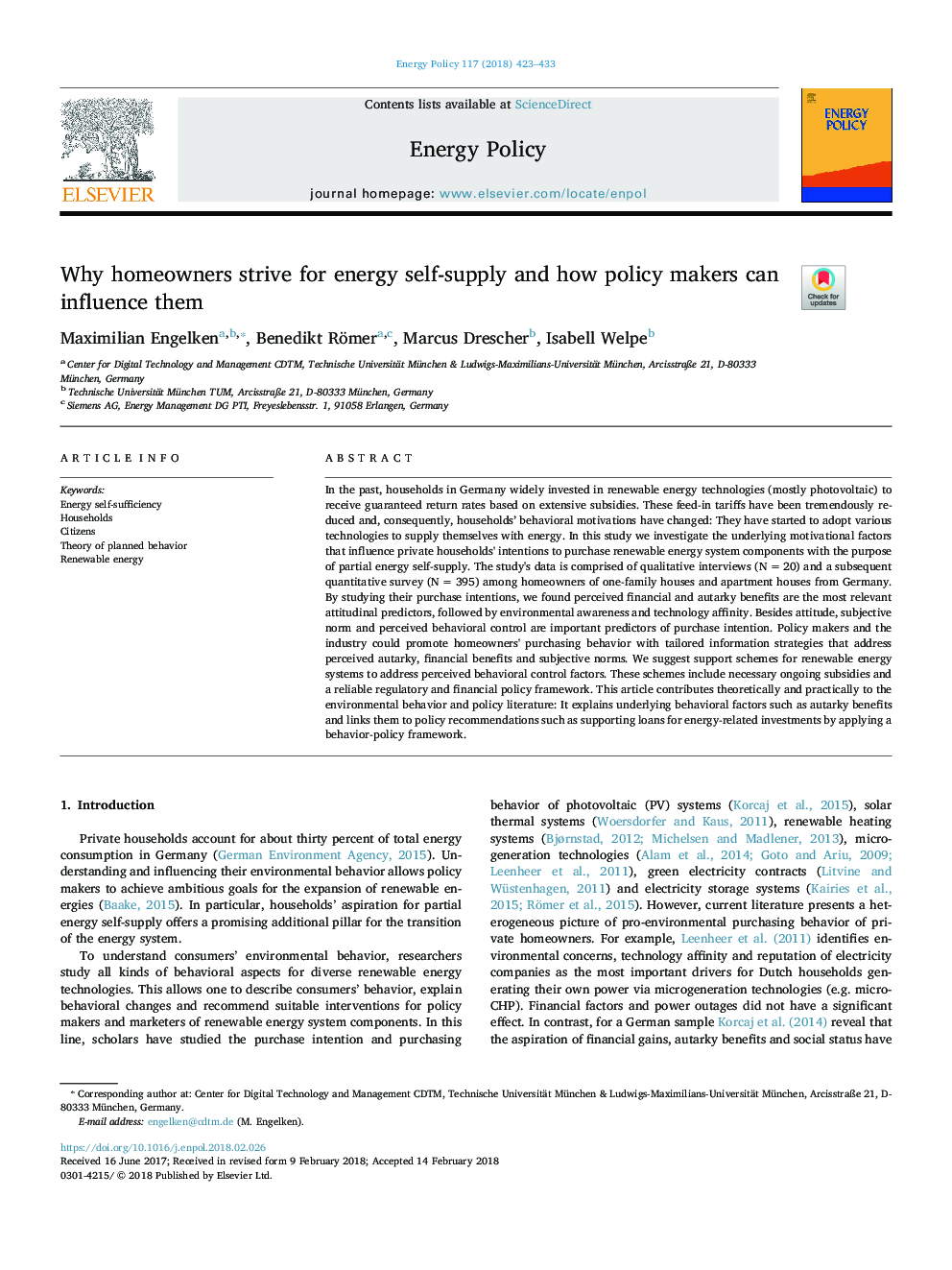| کد مقاله | کد نشریه | سال انتشار | مقاله انگلیسی | نسخه تمام متن |
|---|---|---|---|---|
| 7397178 | 1481241 | 2018 | 11 صفحه PDF | دانلود رایگان |
عنوان انگلیسی مقاله ISI
Why homeowners strive for energy self-supply and how policy makers can influence them
ترجمه فارسی عنوان
چرا صاحبان خانه برای تامین انرژی خود تلاش می کنند و چگونه سیاست گذاران می توانند بر آنها تاثیر بگذارند
دانلود مقاله + سفارش ترجمه
دانلود مقاله ISI انگلیسی
رایگان برای ایرانیان
کلمات کلیدی
خودمختاری انرژی، خانوارها، شهروندان نظریه رفتار برنامه ریزی شده، انرژی تجدید پذیر،
موضوعات مرتبط
مهندسی و علوم پایه
مهندسی انرژی
مهندسی انرژی و فناوری های برق
چکیده انگلیسی
In the past, households in Germany widely invested in renewable energy technologies (mostly photovoltaic) to receive guaranteed return rates based on extensive subsidies. These feed-in tariffs have been tremendously reduced and, consequently, households' behavioral motivations have changed: They have started to adopt various technologies to supply themselves with energy. In this study we investigate the underlying motivational factors that influence private households' intentions to purchase renewable energy system components with the purpose of partial energy self-supply. The study's data is comprised of qualitative interviews (Nâ¯=â¯20) and a subsequent quantitative survey (Nâ¯=â¯395) among homeowners of one-family houses and apartment houses from Germany. By studying their purchase intentions, we found perceived financial and autarky benefits are the most relevant attitudinal predictors, followed by environmental awareness and technology affinity. Besides attitude, subjective norm and perceived behavioral control are important predictors of purchase intention. Policy makers and the industry could promote homeowners' purchasing behavior with tailored information strategies that address perceived autarky, financial benefits and subjective norms. We suggest support schemes for renewable energy systems to address perceived behavioral control factors. These schemes include necessary ongoing subsidies and a reliable regulatory and financial policy framework. This article contributes theoretically and practically to the environmental behavior and policy literature: It explains underlying behavioral factors such as autarky benefits and links them to policy recommendations such as supporting loans for energy-related investments by applying a behavior-policy framework.
ناشر
Database: Elsevier - ScienceDirect (ساینس دایرکت)
Journal: Energy Policy - Volume 117, June 2018, Pages 423-433
Journal: Energy Policy - Volume 117, June 2018, Pages 423-433
نویسندگان
Maximilian Engelken, Benedikt Römer, Marcus Drescher, Isabell Welpe,
